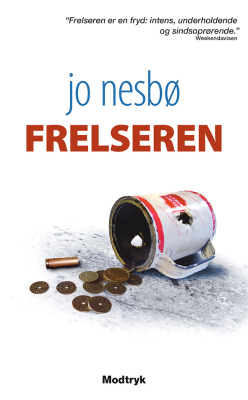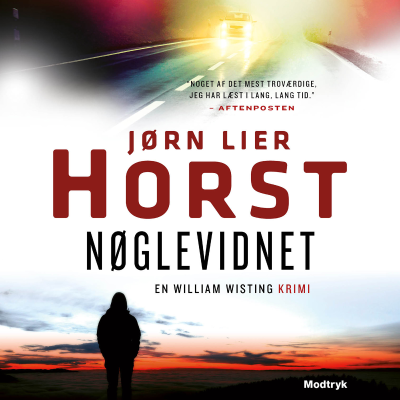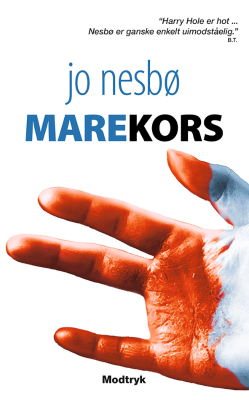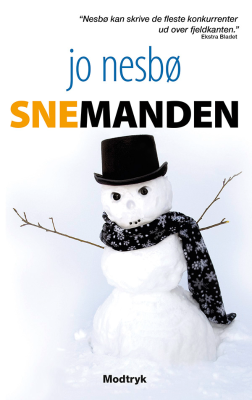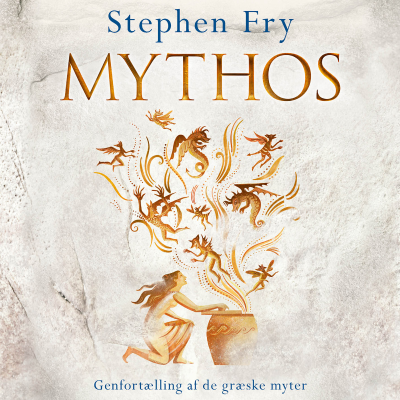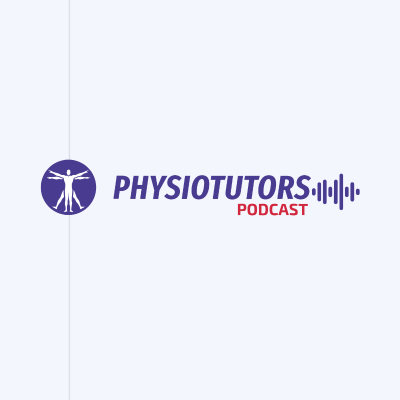
Physiotutors Podcast
Podcast af Physiotutors
The Physiotutors podcast is your opportunity to hear from some of the best physio's, researchers, lecturers and medical professionals for all things physiotherapy related. Join us as we discuss topics from orthopedics to pain management, from spinal cord to respiratory all in the name of physiotherapy.
Begrænset tilbud
3 måneder kun 9,00 kr.
Derefter 99,00 kr. / månedIngen binding.
Alle episoder
77 episoderIn Episode 77 of the PhysioTutors podcast, we welcome Hedwig Neels, a renowned physiotherapist from Belgium who specializes in pelvic health. Hedwig is a professor at the University of Antwerp and founder of the Pelvic Floor platform, which aims to break taboos and make pelvic health accessible and understandable for women. During the episode, Hedwig discusses her journey in creating the Pelvic Floor platform and the common misconceptions around pelvic health, such as the overemphasis on Kegel exercises. She emphasizes the importance of education, awareness, and a holistic approach to pelvic health. The conversation also covers pelvic health during pregnancy and postpartum, highlighting the need for pelvic floor training and the challenges in returning to high-impact sports. Hedwig shares insights into male pelvic health, particularly saddle pain in cyclists, and the significance of relaxation over strengthening in certain cases. The episode concludes with a discussion on the future of pelvic floor rehabilitation and the importance of open communication and education in the field. Hedwig provides valuable resources and advice for physiotherapists and individuals looking to understand and improve pelvic health. Guest Hedwig is a physiotherapist specializing in pelvic health, with a particular focus on education and awareness. She is a professor at the University of Antwerp, where she combines academic research with clinical practice at the University Hospital of Antwerp. Hedwig is also the founder of The Pelvic Floor, an information platform and community designed to break taboos and make pelvic health accessible and understandable for all women. She teaches both medical and paramedical professionals through the Women's & Pelvic Health Professionals network and is the author of Het Bekkenbodemboek — a beautifully illustrated, accessible guide to pelvic floor health for women. Her clinical expertise also extends to athletes, including both women and men, with a special focus on cycling-related saddle pain and its impact on performance. Content 00:00 Intro 01:12 Why she started her Pelvic Health Platform 03:19 Misconceptions about the Pelvic Floor 06:42 Sponsor 07:19 Lowering the barrier to start talking about pelvic health 12:00 Pelvic Health during and after pregnancy 15:40 Return to sport post-partum 20:00 Quantifying pelvic floor function in practice 23:37 Pelvic Floor Problems among top reasons women stop playing sports 26:52 Male pelvic pain 31:43 More about letting go than holding in 34:12 Pelvic health skills for non-pelvic health practitioners 37:01 Sponsor 38:02 Go beyond Kegels 42:54 Don't forget the pelvic girdle 46:34 The biggest innovation in pelvic rehab 49:32 What every physio should know about pelvic health 51:02 Hedwig's closing thoughts 53:18 Contact info & Outro Bonus Material Download the referenced transcript including PubMed Links and a high-resolution infographic on this episode as part of your Physiotutors membership on the Physiotutors App. Download the Free App now https://onelink.to/6dtzk5 Follow our Podcast on: Spotify [https://open.spotify.com/show/1P5Ga6EYuvPpjIxxLDMBg3] | Apple Podcasts [https://podcasts.apple.com/au/podcast/physiotutors-podcast/id1482089171]
In episode 76 of the podcast, we engage with Dan Elias, a seasoned physiotherapist with over 15 years of experience, specializing in youth athletes. Dan works with the England athletics team and runs the Youth Physiotherapy Clinic in Bath, focusing on athletes aged 8-18. During the episode, Dan discusses his journey into youth physiotherapy, emphasizing the unique approach required for treating young athletes compared to adults. He highlights common misconceptions about physiotherapy for children and the importance of adapting communication and treatment strategies to suit their developmental needs. Dan elaborates on the challenges of managing injuries during growth spurts and the significance of bone health and appropriate strength training for young athletes. He also addresses the phenomenon of overtraining, offering insights into recognizing early signs and mitigating risks through proper rest, nutrition, and diversified physical activities. The conversation underscores the role of fun and engagement in rehabilitation and the necessity of establishing healthy long-term habits for injury prevention. Dan stresses the importance of understanding each child's unique circumstances and fostering a supportive environment that encourages confidence and communication. The episode is a comprehensive discussion on the nuances of youth physiotherapy, offering valuable insights for parents, coaches, and practitioners involved in youth sports. Content 00:00 Intro 01:14 Dan's Journey into Youth Athletics 04:34 What are the biggest misconceptions on Youth Athlete Physiotherapy 08:03 Tips on communicating with children & adolescents 10:08 How Growth Spurts affect Injury Risk 16:19 Sponsor 17:20 What does a typical Assessment look like 22:20 What are common injuries in this population? 25:05 Are avulsion fractures prevalent? 26:13 How to recognize early signs of overtraining 30:30 How to deal with overtraining symptoms 33:01 Specific sports that have the most injuries 35:35 Resistance Training in adolescents 38:02 How to design "fun" rehab plans 41:15 Sponsor 42:03 How to help adolescents create healthy habits 45:26 Physical and mental advice for young patients 50:25 Parents' biggest mistakes in youth development 52:54 Early sports specilization 54:05 Dan's closing thoughts 55:47 Contact Info & Outro Bonus Material Download the referenced transcript including PubMed Links and a high-resolution infographic on this episode as part of your Physiotutors membership on the Physiotutors App. Download the Free App now https://onelink.to/6dtzk5 Follow our Podcast on: Spotify [https://open.spotify.com/show/1P5Ga6EYuvPpjIxxLDMBg3] | Apple Podcasts [https://podcasts.apple.com/au/podcast/physiotutors-podcast/id1482089171]
In this episode of the podcast, we are joined by Shrey Vazir, an advanced physiotherapist and founder of Mind Body Horizons. Shrey shares his personal journey of managing fibromyalgia and discovering the intersection of mindfulness and physiotherapy. He emphasizes the importance of integrating mindfulness practices into healthcare, particularly for managing chronic pain, stress, and burnout. Shrey discusses the science behind mindfulness, its benefits for patients and healthcare professionals, and offers practical steps for incorporating mindfulness into physiotherapy practice. He also addresses common misconceptions and barriers to adopting mindfulness and shares success stories of patients and professionals who have benefited from these practices. Listeners will get book recommendations for those interested in learning more about mindfulness and information on how to connect with Shrey. Content 00:00 Intro 01:33 Shrey's Background 05:16 Founding Mind Body Horizon 07:40 Defining Mindfulness in Healthcare 14:05 Effects of Chronic Stress 20:24 How to integrate Mindfulness in Practice 28:10 Mindfulness Tips to prevent Clinic Burnout 32:15 Barriers to implementing Mindfulness 35:55 Athletes swear on Mindfulness 38:00 Dealing with Skepticism 43:15 Success Stories 50:56 Mindfulness Movement 52:50 Shrey's closing thoughts 54:25 Book Recommendations 56:32 Contact Info & Outro Bonus Material Download the referenced transcript including PubMed Links and a high-resolution infographic on this episode as part of your Physiotutors membership on the Physiotutors App. Download the Free App now https://onelink.to/6dtzk5 Follow our Podcast on: Spotify [https://open.spotify.com/show/1P5Ga6EYuvPpjIxxLDMBg3] | Apple Podcasts [https://podcasts.apple.com/au/podcast/physiotutors-podcast/id1482089171]
In Episode 74 of the Physiotutors podcast, host Kai is joined by Dr. Erik Thoomes, an expert in musculoskeletal conditions, particularly cervical radiculopathy. Dr. Thoomes provides an in-depth discussion on cervical radiculopathy, distinguishing it from nonspecific neck pain. He explains that cervical radiculopathy involves radiating arm pain due to nerve root irritation or compression, often caused by disc herniation or spondylotic changes, contrasting it with lumbar radiculopathy. The episode emphasizes the importance of thorough patient history in diagnosis and suggests a cluster of tests including Spurling's test and neural tension tests to improve diagnostic accuracy. Dr. Thoomes also challenges the reliability of traditional dermatomes and myotomes, advocating for individualized assessment and treatment strategies. The conversation covers various treatment options, highlighting the ineffectiveness of cervical traction and suggesting neurodynamic mobilization, spinal manipulative therapy, and targeted exercises. Dr. Thoomes advises adapting management strategies from acute to chronic stages and stresses the role of patient education and self-management. The episode also touches on the limited role of imaging unless necessary and discusses the importance of differentiating cervical radiculopathy from other conditions. Dr. Thoomes calls for more research in areas like epidemiological data and neurodynamic mobilization and shares clinical gems for effective management. The episode concludes with an emphasis on individualized patient care and encourages questions and further discussion from listeners. Content 00:00 Intro 00:52What is Cervical Radiculopathy? 04:05 Cervical vs Lumbar Disc Herniation 05:29 Clearer Terminology needed 07:15 Prevalence and Risk Factors 08:26 Most useful Tests 10:33 Crucial History Findings 11:56 Dermatomal/myotomal examination 13:13 Treatment Options 18:27 Manipulations? Mobilizations? 21:29 Motor Control Training 24:55 Directional Preference in the Cervical Spine? 26:03 Higher Level Exercises 27:01 Self-Management 28:52 Diagnostic Mistakes to Avoid 31:30 Red Flags and Imaging 33:15 Lessons to learn from LRS 34:25 Future Research Directions 37:45 Top Tips 39:27 Outro & Contact Info Bonus Material Download the referenced transcript including PubMed Links and a high-resolution infographic on this episode as part of your Physiotutors membership on the Physiotutors App. Download the Free App now https://onelink.to/6dtzk5 Follow our Podcast on: Spotify [https://open.spotify.com/show/1P5Ga6EYuvPpjIxxLDMBg3] | Apple Podcasts [https://podcasts.apple.com/au/podcast/physiotutors-podcast/id1482089171]
Description In episode 73 of the Physiotutors podcast, we talk to Philipp Andersson, a seasoned physical therapist and strength and conditioning coach who heads the medical department for IFK Värnamo in Sweden's top football league. Philipp shares insights into his unconventional journey into sports physiotherapy, starting with a passion for working in professional sports, leading to volunteering opportunities that paved his way into elite sports teams. Despite lacking initial connections, his determination and strategic volunteer work helped him secure his current role. Philipp discusses the unique challenges of working with both women's and men's football teams and the differences between training high-profile clients and professional athletes. He emphasizes the importance of sport-specific training and the need to connect gym work with on-field performance. The conversation also touches upon common injuries in soccer, particularly the prevalence of ACL injuries in women and muscle injuries in men, and the balance between performance and recovery. Philipp talks about the realities of working in professional sports, debunking myths about glamour and high salaries, and highlights the rewarding aspects, such as forming strong connections with players. He also shares his leadership philosophy, stressing the importance of listening and open dialogue within a multidisciplinary team. The episode concludes with insights into Philipp's daily routine and the demands of balancing personal life with a career in professional sports. Guest Philip Andersson is a Physical Therapist and Strength & Conditioning Coach leading the medical department for IFK Värnamo in Sweden’s top football league. With experience in elite women’s football and training high-profile clients, Philip brings a wealth of knowledge on athlete care and performance. Content 00:00 Intro 00:35 Philip's Journey into Professional Sports 03:13 Challenges of working with Athletes vs. Celebrities 05:05 How he landed his clients 06:00 Most common injuries he sees 07:45 Different injuries in men's vs. women's sports 08:22 Decision-making for RTP in professional sports 09:46 What's physio really like in professional sports 12:07 Common misconceptions 14:35 Most rewarding moments 18:13 Differences working with high profile clients 19:17 Leadership lessons 20:45 Philip's Advice to land a job in professional sports 23:30 Use of non EBP in professional sports 28:08 Philip's work philosophy 29:20 A typical day/week 32:20 Career Plans 34:30 Bonus Story 37:50 Bonus Story 2 39:29 Contact Info & Outro Bonus Material Download the referenced transcript including PubMed Links and a high-resolution infographic on this episode as part of your Physiotutors membership on the Physiotutors App. Download the Free App now https://onelink.to/6dtzk5 Follow our Podcast on: Spotify [https://open.spotify.com/show/1P5Ga6EYuvPpjIxxLDMBg3] | Apple Podcasts [https://podcasts.apple.com/au/podcast/physiotutors-podcast/id1482089171]
Begrænset tilbud
3 måneder kun 9,00 kr.
Derefter 99,00 kr. / månedIngen binding.
Eksklusive podcasts
Uden reklamer
Gratis podcasts
Lydbøger
20 timer / måned













